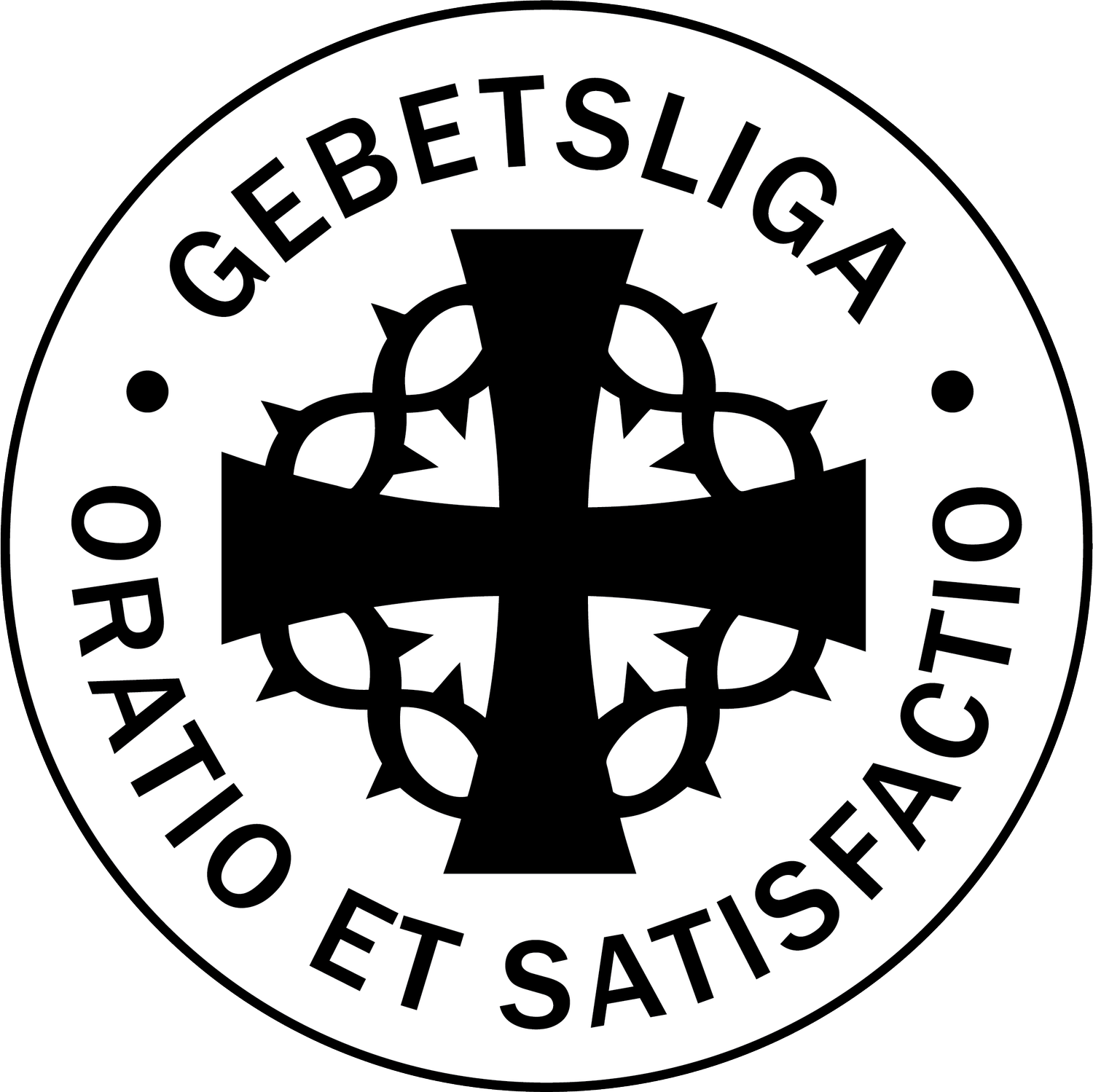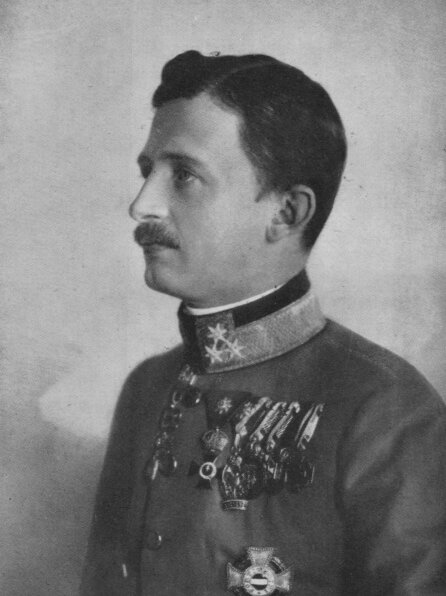Blessed Karl’s First Restoration Attempt Spotlights His Most Appealing Virtues
By Suzanne Pearson
Holy Thursday 2021 marks the 99th anniversary of the holy death of Blessed Emperor Karl.
This past weekend, various articles, videos, and liturgical celebrations recalled his first attempt to return to Hungary and resume his duties as King. Hungary still called itself a monarchy in 1921 and the regent, Miklós Horthy, claimed to be temporarily holding power until he could return it to Hungary's rightful King.
Charles Coulombe, author of the new biography, Blessed Charles of Austria: A Holy Emperor and His Legacy, has suggested that we think of this whole year, from now until April 1, 2022, as a memorial centennial, during which we will follow Blessed Karl through the last tumultuous months of his life, absorbing inspiration and guidance from his heroic deeds and beautiful virtues, culminating in his heroically virtuous death.
Emperor Karl died while adoring Jesus in the Blessed Sacrament. In his last moments of terrible suffering, Father Zsámboky, the house chaplain, holding the monstrance right before his eyes, announced, “The Savior is here.” Emperor Karl opened his eyes and looked with love at Jesus in the Blessed Sacrament. “Thy Will be done,” he said. “Jesus, Jesus, come!”
His tender love for Our Lord in the Most Holy Eucharist can also be seen in King Karl's first restoration trip into Hungary.
Arriving in Vienna late on the night of Good Friday after his perilous journey from Switzerland, he spent three hours kneeling before the tabernacle in St. Peter's Church, pleading with God to help him negotiate
with Horthy and reclaim his throne.
The next day, driving from the Hungarian border to Szombathely, he stopped the car to kneel in the street as the Blessed Sacrament passed in a Holy Saturday procession.
On Easter Sunday, after he and Horthy actually met, and Horthy refused to relinquish power, several officers on duty at the castle saw King Karl rush down a long hall and stand silently in front of a closed door for several minutes before returning to his car. Although they did not understand what he was doing, this had been the door to his chapel, and he came there to beg for grace and strength to face the consequences of his daring venture that had failed.
Back at the Bishop’s Residence in Szombathely after his fruitless meeting with Regent Horthy: We can see in Blessed Karl’s face the burden of sorrow and concern for his people that weighed down on him in the face of the failure of his daring mission.
Charles Coulombe has also suggested that we consider this year as Blessed Karl's Via Dolorosa leading up to his death, and just as Our Blessed Lord, even in His agony, comforted the women of Jerusalem and the good thief, and entrusted His Holy Mother to St. John, so we can see the irrepressible charity of Blessed Karl for his beloved people even during his perilous journey.
Though he was concealing his identity during the short cab ride from the Vienna train station to the home of his friend, Tamás Erdődi, he could not stop himself from reaching out in compassion to the driver, asking him about how life was going for him and his family. The man jumped at the chance to describe how difficult everything was since the War. Austrian money lost value every day, services were almost nonexistent, food and necessities grew ever more expensive, and he and his family were suffering terrible hardship.
Blessed Karl gave him a huge tip, saying, “Buy a nice Easter dinner for your family,” and even gave him the bag of food he had taken for his trip. As the passengers exited his cab, the driver said to himself, “Such enormous generosity! This could only be the Emperor Karl!”
On this trip, Blessed Karl also shows us that heroic virtue, returning good for evil, patience, long-suffering, mercy and forgiveness don't happen automatically. In private notes, which he had jotted down during the trip for his own recollections only, he described his two‐hour struggle with Horthy, the insulting, accusing, mean, and nasty way the regent spoke with him, and his own desperate attempts to ignore the insults and squelch the fires of anger that tried to rise within him. He kept reminding himself of all the good he had seen in Horthy. In these excerpts from his notes, we can get some idea of the struggle raging inside Blessed Karl:
“There arose in me such a horror at this vulgar treatment that I became physically ill, and only with the greatest difficulty was able to answer him. ...”
“Only by summoning all of my powers of self‐control did I succeed in ignoring this disgraceful remark. I kept silent out of love for Hungary, in the ever‐growing conviction that this man must be removed from leadership, and that the direction of this country must be taken out of his hands. ...”
“I fought to suppress all feelings of outrage. Perhaps I could still call forth a nobler side of my Admiral. I tried, while I held him before my eyes, to recall all the reasons for which I had honored and promoted him. ...”
The King's notes were published after his death by his assistant Baron Karl Werkmann, with the permission of Empress Zita, in the book, Aus Kaiser Karls Nachlass.
The King's daughter Elisabeth later testified:
“When my mother asked the Servant of God how it was possible for him to stay in control of himself, my father replied that it is easy, when one exercises regularly.... 'If one practices domination of self in all the little things, in all the ordinary happenings of each day, then one can remain completely master of oneself even in such a difficult moment.' ”
Constant prayer and a conscious effort to do God’s will in every situation guided Blessed Karl in his efforts to conduct his office as ruler with justice and charity.
This deeply religious spirit, combined with his genuine love for people, underlay his actions as Emperor and King, and continued to guide him in exile and in his restoration attempts.
It is interesting to ponder that, on this very same day the next year, March 27, 1922, when Blessed Karl was dying in Madeira, he declared solemnly:
“I forgive all my enemies, all those who have wronged me, and all who are working against me. I want to continue to pray and to suffer for them.”
The virtues that shone forth so strikingly during this dangerous trip--bravery, generosity, kindness, recourse to prayer, and the constant effort to see the best even in his adversaries—had marked Blessed Karl’s whole life, and would bring him soon to a holy death. The same traits that made King Karl a saint in the eyes of God were the things that made him so appealing to his countrymen. Scene after scene in the story of his restoration attempt shows with what enthusiasm his love for his people was reciprocated.
Before leaving Szombathely to return to Switzerland, King Karl addressed the gathered townspeople from the balcony of the Bishop’s Residence, promising to return. Several similar rallies were held during his trip back to the Austrian border, as word spread and people spontaneously gathered. Though the people were saddened by his departure, the mood was joyous because the King was in their midst for that moment, and because everyone expected him to return before too long.
The hopes they shared, even after this first disappointment, were not to be granted on earth, pointing us again to Easter, recognizing that the victory of Christ’s resurrection is the only sure answer to the sorrows that befell King Karl and that continued to afflict the people of Hungary during the century that followed.



